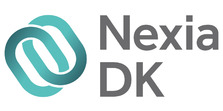How emerging technology is changing the role of the accountant
Accountants are embracing new AI and robotics technologies to take away low value, repetitive tasks.
In the past many junior auditors dreaded trawling through endless stacks of paper to locate a randomly selected invoice before diving back in to find the next one.
The process was time consuming, fatiguing and generally a poor use of a professional qualification. Now, accountants can use software robots to automatically find and scan electronic invoices, extract the key data requirements and compare them to a client's records.
Auditors still understand the processes and data, but now have far more time to focus on interpreting the results, understanding the anomalies, identifying fraud and making sense of the information.
Game changer
The last five years has seen an explosion in automating this type of work in the accounting world. Businesses are quickly adopting robotic process automation (RPA) and cloud accounting solutions to automate data entry, matching, reconciliations and repetitive decision processes.
More advanced machine learning technologies can read and interpret contracts, smart assistants can scan tax returns for missing deductions, and bots can identify companies that may be impacted by changes in tax laws.
Auditors are increasingly embracing solutions to automate continuous testing throughout the year, focusing on anomalies and fraud indicators rather than random samples.
Informed decisions
The winners in this latest technology revolution will be those who act now. Embracing the technology to automate the mundane is freeing up advisers to apply their expertise to understanding, interpreting and applying the data to assist their clients’ business decisions.
It is this human-factor that makes the difference to client companies. The technologies are very effective and efficient at identifying patterns and correlations, yet limited in understanding why the patterns exist, how to use the data and if the data is reliable in the first place.
So, accountants are expanding their toolkits to understand processes, data sources, basic programming and how these new technologies work. The young accountants now entering the profession are looking to work with businesses that not only talk about these technologies but have implemented them.
The future accountant will not be processing transactions and compiling reports, but they will still need to understand these processes to accurately interpret and apply the output.
While we are still a long way from the image of artificial intelligence (AI) promised by Hollywood, the technology offers a very exciting opportunity for accountants and their clients – if they seize it.
For more information, contact:
Lester Wills
Nexia Sydney, Australia
T: +61 2 9251 4600
E: iwills@nexiasydney.com.au
W: www.nexia.com.au


